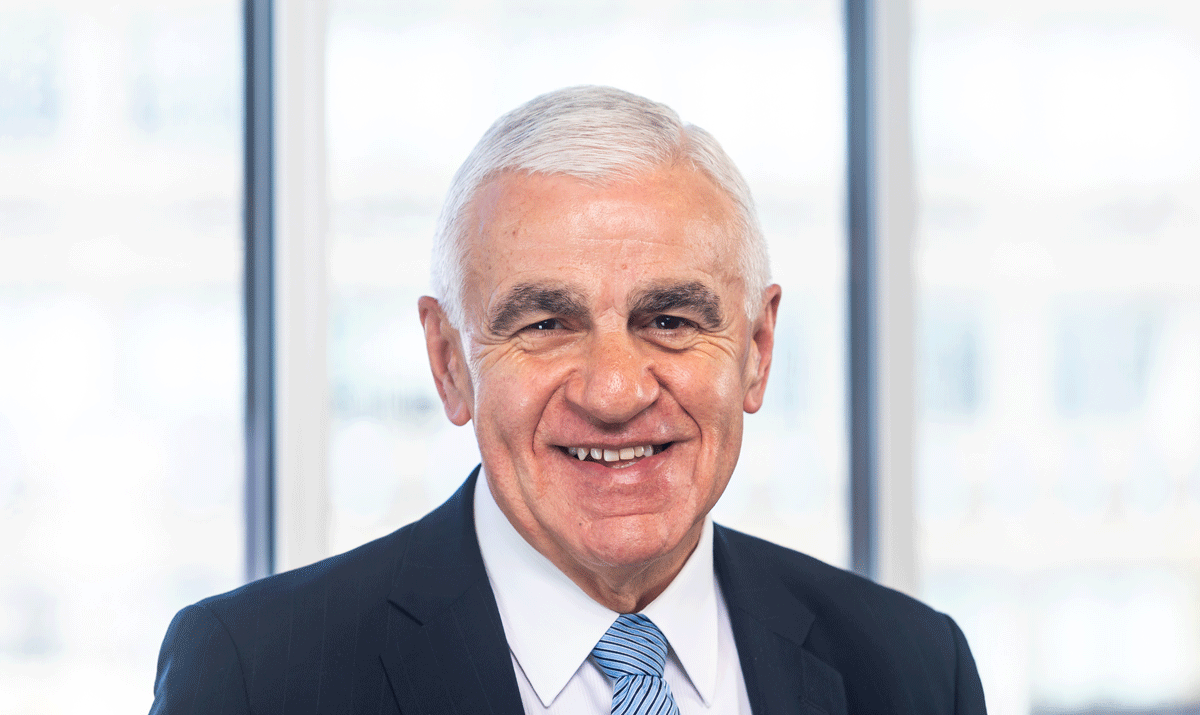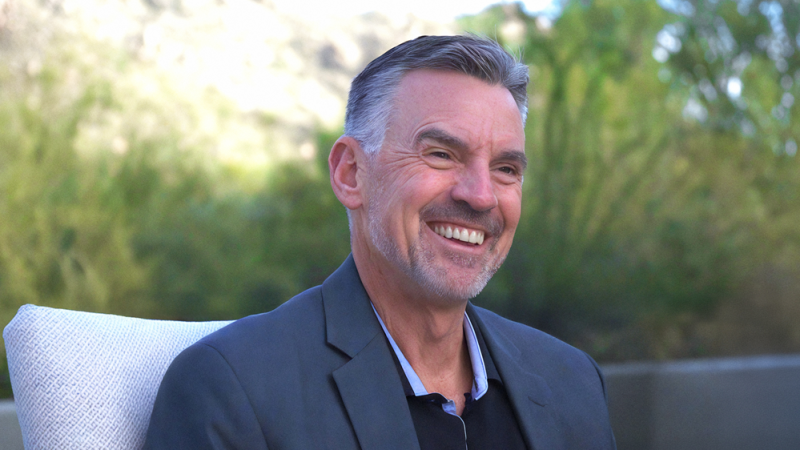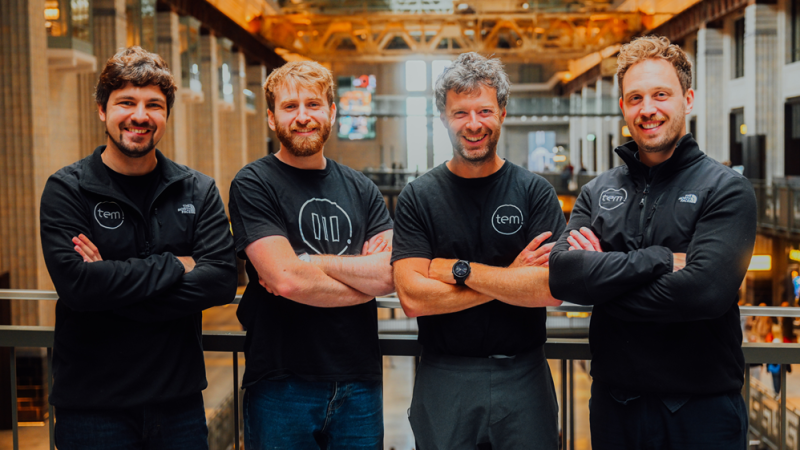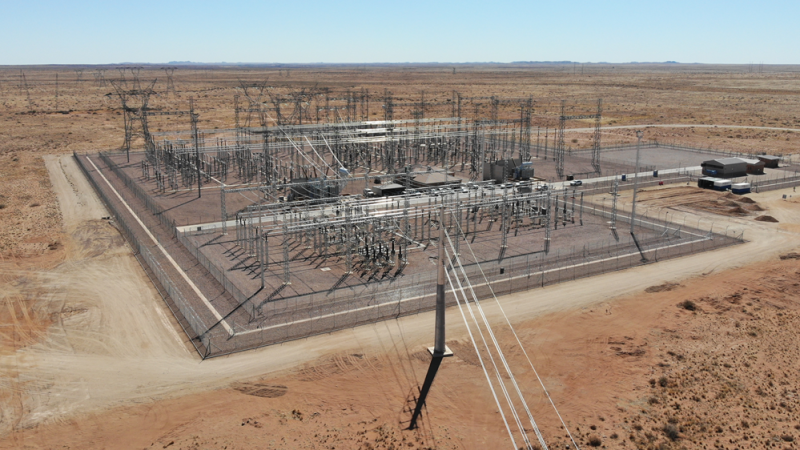The company owns and manages all of the electrical infrastructure that connects power to the people that use it across London, the South, and the East of England, keeping the lights on for 20 million people. That is about a third of the population of the UK. “We do not bill you, the customer. We do not buy electricity and we don’t sell it. We transport electricity,” explains Basil Scarsella, CEO of UK Power Networks. “We are a bit like the distributor that delivers food to the supermarket. The retailers pay us to deliver the electricity.”
The company is owned by a Hong Kong-based global conglomerate, CK Holdings, one of the biggest foreign investors in the UK. The conglomerate became the owner of UK Power Networks in 2010, appointing Scarsella as CEO.
Today the company has 6,300 employees and brings in £2.3 billion in revenue. The complexity of the service required to provide electrical infrastructure means that power supply is provided by regional monopolies in Great Britain, all of which are overseen by the regulator, OFGEM.
“Our price is set by OFGEM based on the investment we make on the network. We are incentivised to provide excellent customer service and reliable networks at the lowest possible cost,” Scarsella says.
OFGEM monitors all the electricity distribution companies in Great Britain and ranks them against a range of metrics, such as customer service, network reliability, safety record and the measures they take to look after vulnerable customers. UK Power Networks tops most of these performance tables.
Scarsella is clear about the reason for that.
“This is all about providing great customer service, and that is due to the excellent commitment of our employees,” he tells us.
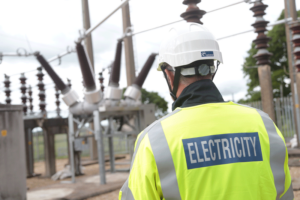 The Pillars of the Power Network
The Pillars of the Power Network
To maintain that level of service, UK Power Networks assesses itself against four key pillars.
These pillars include its reputation as a respected corporate citizen, not only providing excellent customer service and a safe and reliable electricity supply but also in being seen as trusted and responsible in its interactions with the community.
The pillars also include the goal of remaining a sustainably cost-efficient operation. As Scarsella points out, “We want to be able to deliver our services at the lowest possible costs.”
The next pillar is UK Power Networks’ role in enabling the transition to net zero.
“The role we play is critical to the country as it drives towards achieving net zero by 2050, which is a legally binding commitment,” Scarsella reminds us. “That means all transport, all vehicles, all heating, everything needs to be electrified, while the way electricity is generated is shifting away from coal and gas towards renewables like wind, solar and nuclear. We want to make sure that our network is ready and able to deliver net zero power by the deadline, so we can help facilitate the transition to net zero and put no obstacles in its way.”
The Employer of Choice
But the first and most important of these pillars is about UK Power Networks’ people: valuing them and keeping them safe. That is the pillar on which every other pillar relies.
“We want to be an employer of choice,” Scarsella says. “We treat our employees well and fairly and make sure they are safe. We are an inclusive organisation that reflects the communities that we serve.”
UK Power Networks closely monitors its performance across all four of these key pillars. It aims to be the best-performing group and network in its sector. The independent regulator, OFGEM, has described it as the premier performing group of networks across those criteria.
To continue to uphold that status as an employer of choice, UK Power Networks commissions an independent survey of its employees every year through a company called Best Companies.
“It measures what employees think of us as an organisation, and we really care about that,” Scarsella tells us. “They are critical to the performance of the organisation, and we appreciate and value all 6,300 of them.
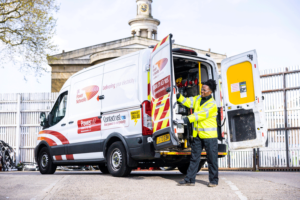 UK Power Networks’ infrastructure is spread across a huge swathe of the country, so its people must be too.
UK Power Networks’ infrastructure is spread across a huge swathe of the country, so its people must be too.
“We recruit locally,” Scarsella says. “We are widely spread from Brighton to Peterborough and up the East Coast, but importantly we have sites in 40 locations across that area. We have built strong relationships with schools and other community organisations where we operate, so we are deeply embedded with those communities. We need to be close to where our own network is. If something goes wrong, we can respond quickly by deploying local employees who live locally.”
Its people are spread not just geographically, but chronologically, with a regular influx of fresh talent, and a strong foundation of long-serving veterans of the company.
“We employ 60 apprentices every year and have plans to expand that to 100 this year. Our focus on our employees means we have a great retention rate; of the 6,300 employees, we have about 300 employees who have been with us over for 40 years or more,” Scarsella says. “We have a very low churn rate of about 2% a year. We employ locally, we train locally, and we retain people simply because we treat them well.”
The company is committed to developing its employees and promoting from within. This home-grown talent builds a strong culture that means people understand and buy in to the vision. The company routinely measures employee engagement through the Investors in People (IiP) certification. UK Power Networks is one of only 5% of organisations around the world evaluated by the group that has received its Platinum accreditation. It also regularly ranks in the Top 10 Best Companies to Work For in the UK.
This points to a bright picture for the future of the company.
“As the country transitions to net zero, demand for electricity is expected to double, creating opportunities for more employment and progression,” Scarsella says. “But this will also create a challenge as we work to maintain and improve on our current 94% customer satisfaction.”
That rating, the result of independent surveying of UK Power Networks’ customers, positions the company as the best service provider in its sector as judged by the customers who interact with it. UK Power Networks is currently the #1 utility for customer service in the UK, as measured by the Institute of Customer Service.
“Most of our customers only come into contact with us when the power is off, so they’re already not very pleased we have disrupted their lives,” Scarsella explains. “So that 94% score really means something.”
